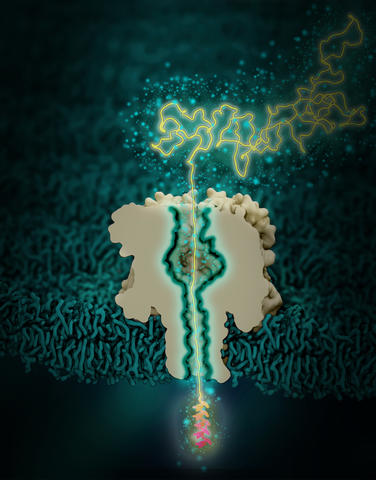Unidirectional single-file transport of full-length proteins through a nanopore

The electrical current blockade of a peptide or protein threading through a nanopore can be used as a fingerprint of the molecule in biosensor applications. However, threading of full-length proteins has only been achieved using enzymatic unfolding and translocation. Here we describe an enzyme-free approach for unidirectional, slow transport of full-length proteins through nanopores. We show that the combination of a chemically resistant biological nanopore, α-hemolysin (narrowest part is \textasciitilde1.4\thinspacenm in diameter), and a high concentration guanidinium chloride buffer enables unidirectional, single-file protein transport propelled by an electroosmotic effect. We show that the mean protein translocation velocity depends linearly on the applied voltage and translocation times depend linearly on length, resembling the translocation dynamics of ssDNA. Using a supervised machine-learning classifier, we demonstrate that single-translocation events contain sufficient information to distinguish their threading orientation and identity with accuracies larger than 90%. Capture rates of protein are increased substantially when either a genetically encoded charged peptide tail or a DNA tag is added to a protein.